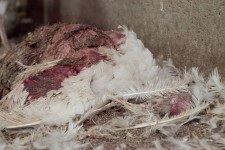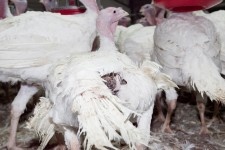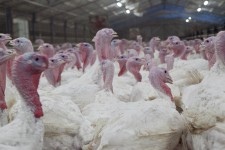- Overview
- Confinement
- Turkey poults
- Mutilation
- Artificial lighting
- Health Concerns
- Use of antibiotics
- Genetic alterations
- Muscle disorders
- Skeletal disorders
- Lame and injured birds
- Mortality rate
- Artificial insemination
- Health problems of breeders
- Slaughterhouse
- Turkeys: sentient and intelligent
- Conclusion
- References
Confinement
On average, up to 14,000 turkeys are placed in a shed when they are only a day old.(6) This equates to six birds per square metre of space.(7) Turkeys have 46kg/m2 of floor space(8), which equates, on average, to an A3-sized sheet of paper of space each. As they grow, turkeys become much bigger than chickens, resulting in extremely cramped conditions for the duration of their lives.
These conditions are extremely stressful as the birds are unable to carry out any of their natural behaviours, such as spreading their wings, flying, perching, foraging, running, dust bathing and simply breathing fresh air and feeling the sun. For example, in their natural state turkeys enjoy perching above ground, but factory-farmed turkeys are unable to do so because an electrified wire runs along the feeders in the sheds, and there is nowhere else above ground to settle.(9) If the turkeys touch the wire they receive an electric shock to prevent them from perching.
Being raised in these conditions inflicts serious health and welfare problems on the birds. (See Figures 1 and 2).
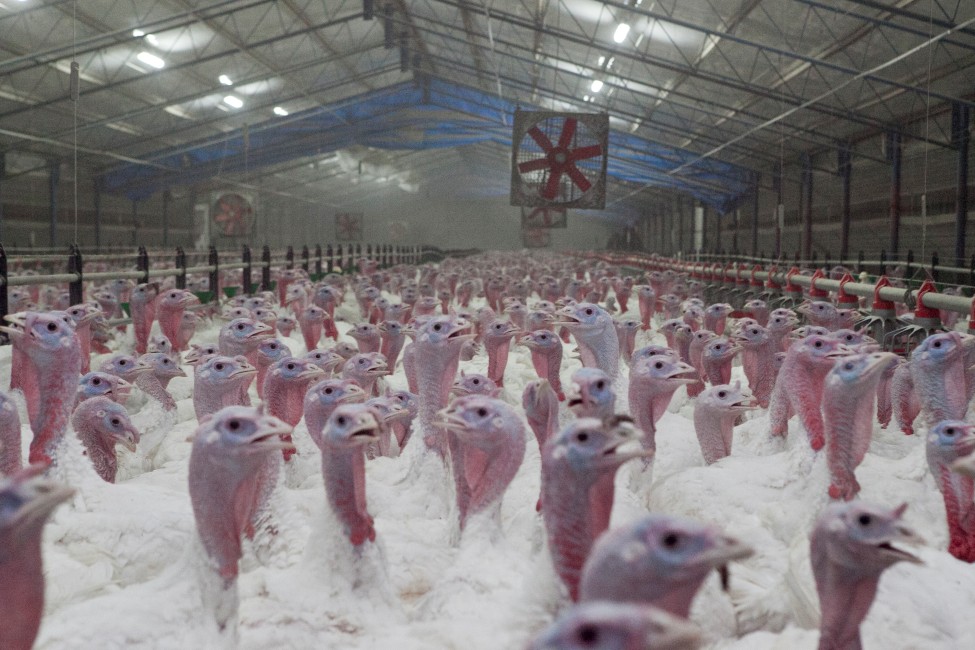 Figure 1: One of the largest turkey producers in Australia (Ingham's): A turkey factory farm in Australia - birds aged approximately nine to ten weeks old.
Figure 1: One of the largest turkey producers in Australia (Ingham's): A turkey factory farm in Australia - birds aged approximately nine to ten weeks old.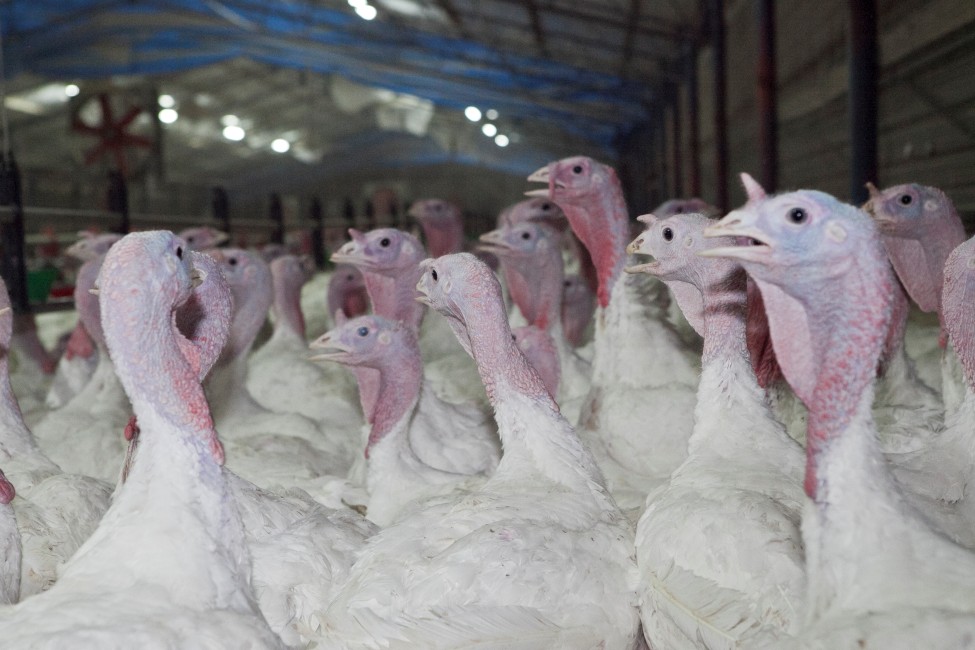 Figure 2: One of the largest turkey producers in Australia (Ingham's): A turkey factory farm in Australia - birds aged at approximately nine to ten weeks old. The turkeys are so crammed that they are trampling and stepping on top of each other.
Figure 2: One of the largest turkey producers in Australia (Ingham's): A turkey factory farm in Australia - birds aged at approximately nine to ten weeks old. The turkeys are so crammed that they are trampling and stepping on top of each other.

